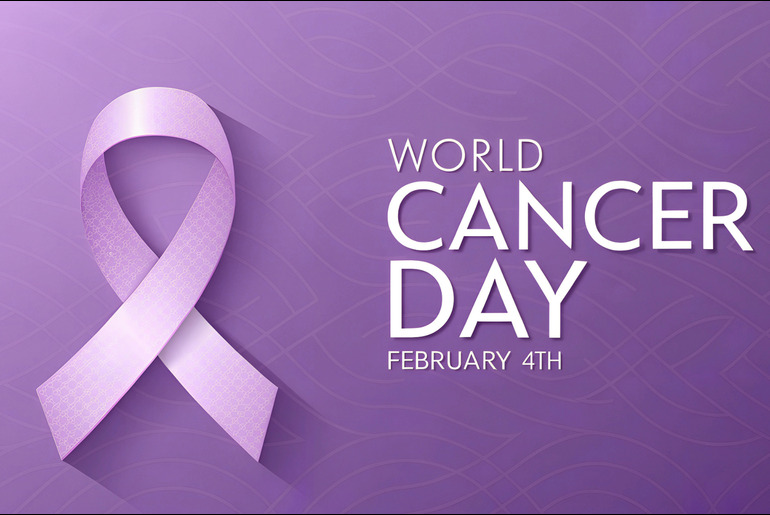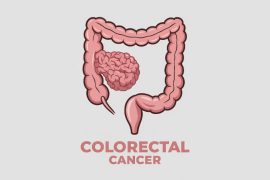Cancer is something we all hear about, and it’s no surprise—millions of people are diagnosed with it every year. It’s one of the leading health concerns, and understandably, it causes a lot of worry. But with all the talk about cancer, there are still many myths and misunderstandings that make things even scarier. These myths can lead to confusion and fear, making it harder for people to know what to believe and how to care for their health.
In this article, we’re going to clear up some of the most common cancer myths. By busting these myths, we aim to give you the facts, help ease your worries and promote a better understanding of cancer and its treatments. Let’s take a look at the truth behind these common misconceptions:
Myth 1: “Using Smartphones or Microwaves Causes Cancer”
One of the most common myths is that radiation from smartphones or microwaves can cause cancer.
Fact: The type of radiation these devices emit is called non-ionizing radiation. [1]This means it doesn’t have enough energy to harm your DNA or cells in a way that could lead to cancer. While it’s always smart to limit unnecessary exposure to devices, there’s no solid evidence linking the regular use of smartphones or microwaves to cancer. So, you can breathe easily—using these devices daily isn’t likely to cause cancer.
Myth 2: “Eating Sugar Makes Cancer Grow Faster”
A lot of people believe that eating sugar directly feeds cancer and makes it grow faster, but that’s not entirely true.
Fact: While it’s true that cancer cells may use more glucose (sugar) than regular cells, it doesn’t mean that sugar itself causes cancer to grow faster. [2]Cancer is a complicated disease, influenced by genetics, environment, and lifestyle. Eating sugar in moderation as part of a balanced diet won’t directly affect cancer growth. The important thing is to focus on maintaining a healthy lifestyle and a well-balanced diet rather than worrying about sugar alone.
Myth 3: “Cancer Is Always Hereditary” [3]
It’s a common belief that cancer only happens if it runs in the family.
Fact: While genetics can play a role in some cancers, the truth is that most cancer cases aren’t inherited. Lifestyle choices like smoking, diet, and physical activity have a much more significant impact on your risk of developing cancer. If there is a family history of cancer, it’s definitely worth talking to your doctor, as you might need to be extra cautious with screenings. But don’t assume that cancer is always hereditary—it’s just one of many factors that can contribute to the disease.
Myth 4: “Cancer Treatments Are Worse Than the Disease”
One myth that often stops people from seeking treatment is the belief that cancer treatments, like chemotherapy or radiation, are worse than the disease itself.
Fact: While these treatments can cause side effects, they are specifically designed to target and shrink cancer cells, giving patients a better chance at recovery.
The side effects are usually temporary and can be managed by healthcare professionals. Plus, many advances in cancer treatments have made them more targeted, meaning they cause fewer harmful side effects. The goal of treatment is to cure or manage the disease, and in most cases, the benefits of treatment far outweigh the risks.
Myth 5: “Cancer Always Comes Back After Treatment” [4]
A common fear after cancer treatment is that it will inevitably come back.
Fact: While it’s true that some cancers have a higher chance of returning, many people go on to live long and healthy lives after their treatment. Whether or not cancer returns depends on factors like the type of cancer, how early it was caught, and the treatment used.
Regular follow-up visits and screenings are essential for catching any changes early and addressing them quickly. Staying positive and being proactive with your health after treatment is important for your overall well-being.
Myth 6: “A Biopsy or Surgery Can Cause Cancer to Spread” [5]
Many people worry that getting a biopsy or surgery for cancer could cause the cancer cells to spread to other parts of the body.
Fact: This is a common misconception. In reality, biopsies and surgery are essential tools in both diagnosing and treating cancer. A biopsy involves taking a small tissue sample to check for cancer, while surgery can help remove tumours or cancerous tissue.
While, like any medical procedure, there are risks, there is no scientific evidence that biopsies or surgery cause cancer to spread. Removing cancerous tissue is often an important part of treatment, helping to improve the chances of recovery.
Myth 7: “Only Smokers Get Lung Cancer” [6]
A common myth is that lung cancer only affects smokers.
Fact: While smoking is indeed the leading cause of lung cancer, it’s not the only cause. Non-smokers can also develop lung cancer, though the risk is lower. Environmental factors, such as exposure to second-hand smoke, air pollution, and even genetic factors, can contribute to the development of lung cancer in people who have never smoked. It’s important to remember that lung cancer can affect anyone, and staying aware of your health and monitoring any changes is crucial—whether or not you’ve ever smoked.
Myth 8: “If You Don’t Have Any Symptoms, You Don’t Have Cancer”
Many people think that if they don’t have any symptoms, they must be cancer-free.
Fact: However, cancer can be in your body for months or even years before any symptoms appear. Early-stage cancer often doesn’t show noticeable signs.
This is why regular screenings and check-ups are so important, especially if you have risk factors like a family history of cancer or a lifestyle that might increase your risk. Catching cancer early significantly improves the chances of successful treatment, so it’s important not to wait for symptoms to show up before seeking medical advice. Staying proactive about your health is key.
Conclusion
Cancer is a complex disease that comes with many myths and misconceptions. Knowing the facts is crucial for making informed decisions about prevention, diagnosis, and treatment. By separating myth from reality, we can reduce unnecessary fear and anxiety. While there’s still a lot to learn about cancer, ongoing scientific advancements are helping us understand it better and develop more effective treatments. Remember, knowledge is power. Staying informed about cancer helps you take informed decisions when it come to your health and well-being.
References:
[1]https://www.fda.gov/radiation-emitting-products/cell-phones/do-cell-phones-pose-health-hazard#:~:text=Cell%20phones%20emit%20low%20levels%20of%20non%2Dionizing%20radiation%20when,increases%20cancer%20risk%20in%20humans.
[2]https://www.mdanderson.org/publications/focused-on-health/FOH-cancer-love-sugar.h14-1589835.html#:~:text=It%27s%20true%20that%20sugar%20feeds,may%20result%20in%20weight%20gain.
[3]https://www.cancer.gov/about-cancer/causes-prevention/genetics#:~:text=process%20over%20time.-,Is%20cancer%20hereditary%3F,of%20getting%20cancer%20is%20increased.
[4]https://www.cancer.org/cancer/survivorship/long-term-health-concerns/cancer-as-a-chronic-illness.html#:~:text=Progression%20and%20recurrence%20occur%20when,show%20up%20on%20tests%20again.
[5]https://blog.dana-farber.org/insight/2017/05/can-a-tumor-biopsy-or-surgery-cause-cancer-to-spread/#:~:text=The%20National%20Cancer%20Institute%20has,the%20body%20is%20extremely%20low.





Comments are closed.